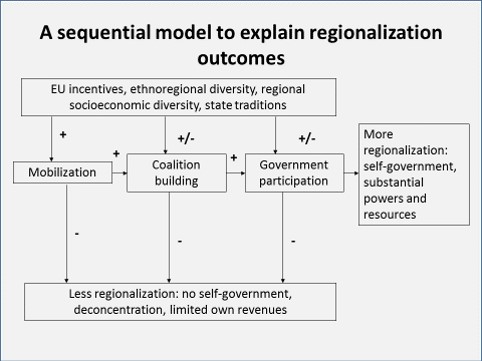A seminar for PhD students at Kazakh National University Al’-Farabi, Almaty
Eastern Europe has been shaped by historically late state and nation building. Due to this trajectory, questions of state identity and cohesion have acquired persisting political relevance. Ethnopolitical conflicts have led to the disintegration of all three state socialist federations. Ethnopolitical cleavages structure party systems in the new nation states of Eastern Europe, particularly where they are related to persisting ethnoregional diversity.
